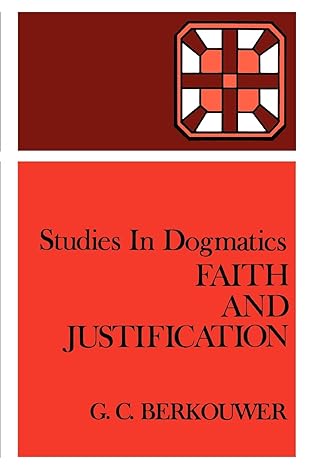A Brief Book Summary from Books At a Glance
by Steve West
Table of Contents
1 Relevance
2 The Way of Salvation
3 Confessional Reconnaissance
4 The Reformation and the Holy Scriptures
5 Some Objections Considered
6 Justification from Eternity
7 The Value of Faith
Summary
Chapter 1: Relevance
Theology must be related to the attentive listening to God’s Word. It is to be lived out and relevant for our lives. Theology is not independent speculation, but rather systematizes the data of the biblical text. Far from being entertainment for theologians, theology must be taught, preached, confessed, and practiced. Faith and justification are crucial doctrines which are grasped by the eyes of faith and are essential for the life of the church. Dialectic theology and neo-orthodoxy have raised new questions about the relationship between faith and justification. Roman Catholicism and the Reformed view of soteriology are said to be closer than has been previously understood. Profound differences, however, exist between infused grace and the imputation of righteousness, as well as in the interpretation of the relationship between God’s sovereign grace and human works as meritorious. Currently, there is a renewed interest in scholarly studies of Luther’s primary sources, and this work has brought about some fresh debates about Luther’s understanding of these issues. Given these developments, the doctrine of justification has been made the focus of many theological discussions.
Justification is not merely one doctrine among many, but is at the heart of the gospel and the Christian life. Faith accepts the provision of God’s salvation; faith is not the cause of salvation. Going wrong at the point of faith and justification creates problems for understanding faith and sanctification, and faith and perseverance. Theology is always conditioned by community and historical location: the problems of theology, and the way they are set, do not exist in a cultural vacuum. This is an inescapable reality, but another reality is that theology needs to deeply engage the Scriptures since the Word of God is our absolute and full authority. Theology is not meant to be speculative, but a discipline which brings about obedience. Analyzing the relationship between faith and justification is not about producing a proposition, but about having a living relationship with God. . . .
[To continue reading this summary, please see below....]The remainder of this article is premium content. Become a member to continue reading.
Already have an account? Sign In
Buy the books

FAITH AND JUSTIFICATION: STUDIES IN DOGMATICS, by G. C. Berkouwer